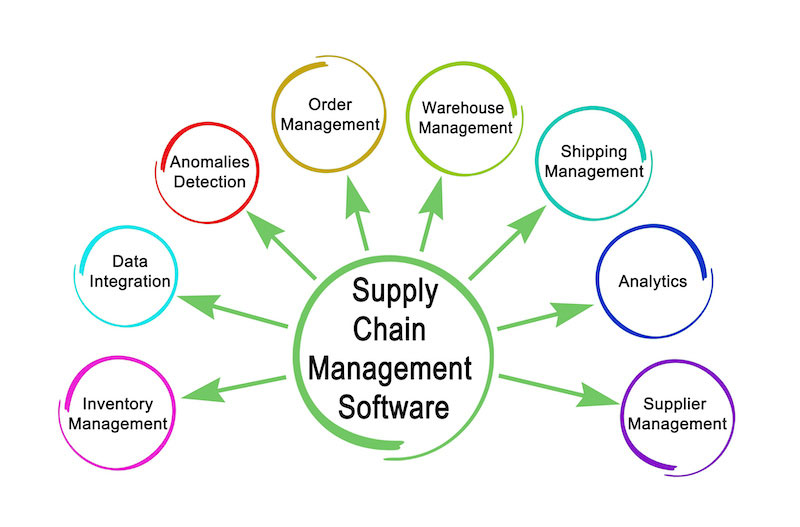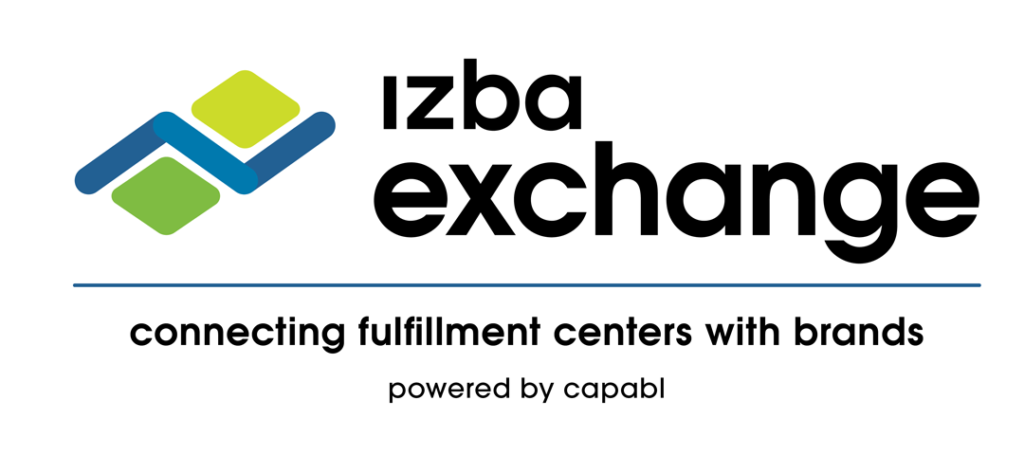
Supply Chain Management in a Nutshell
Supply Chain Management refers to the process of handling the supply of products from it’s source to the customer. Recent developments in contemporary supply chains end at the customer’s doorstep rather than at a retail store owned by the business itself.
Managing a supply chain requires careful planning, strategic execution and innovative experimentation. Needless to say, there’s been no business in history that has managed to get things perfectly right the first time around.
While some have had to address problems at a broader level like finding better trade routes, others have even narrowed down their innovation to the warehouse level by. finding ways to reduce the time it takes for workers to find, locate and move inventory.
And every effort has proved effective in achieving better ROI – meaning there’s a lot to uncover and work towards.
To our advantage, we have technological advancements such as robotics and artificial intelligence well on their way to become commonly available. However, those solutions won’t be as easy to implement as just “plug and play” and users will need to . to get used to using digital assets that prove to be effective tools in helping streamline our operations.
Whether you’re a startup looking to dive into deep waters or an established business looking to expand offshore, you need to plan how you’ll manage your supply chain. Which is why this post will tell you all you need to know about supply chain management tools.
The tools listed below will give you programs and features that you’ll need to carry out huge tasks in specific areas of your operations.
What Does a Good Supply Chain Management Tool Help You With?
Although it’s a huge concept that consists of thousands of processes, here are 4 segments of supply chain management that the tools below can help you with:
- Order Management
- Warehouse Management
- Demand Forecasting
- Transport and Logistics
Order Management
Order management, as the name explains, entails everything about managing day to day orders. It involves managing where and how orders are collected and how they are communicated with FCs and warehouses.
This segment of the supply chain can involve generating and keeping track of invoices, processing payments and updating records. There are numerous reasons and benefits of having a robust order management tool as it can even help prevent over- and understocking.
A business needs to have a system in place that can easily handle hundreds of pieces of datawithout compromising on any of them. Supply chain management tools like Skubana integrate your entire inventory with your fulfillment centers, and sales channels to optimize your S&OP.
Orders aren’t just processed in queues and left behind. All the data that is collected is crucial for businesses who want to identify their target audiences, recognize sales patterns and calculate important KPIs to improve supply chain management.
Therefore, the tools we choose for order management should come with built-in algorithms for providing us with crucial business analytics by evaluating orders received and processed by a business.
Warehouse Management
Warehouse management involves handling operations executed during fulfillment in the warehouse. Organizing storage and inventory and labor tasks with manageable schedules are some of the things a warehouse management system (WMS) can help you with.
Additionally, it can also work as a digital medium that can replace traditional Excel systems in most warehouse spaces. There is a dire need for digital reforms in our warehouses in order to reduce manual errors and overall frustration.
Not only can warehouses achieve better results in terms of performance, but they can also improve coordination and provide transparency to customers and companies about their products. Modern software tools like SphereWMS allow you to provide real time web visibility and reporting.
Reporting and tracking are two features that are enough to win over customers and if you’re a fulfillment center, to win over clients.
Demand Forecasting
Demand forecasting is an integral part of supply chain management. You can’t know how much inventory you need shipped to which location unless you have a demand forecast to consider.
As always, demands are defined by the customer and at any given time, they have the control to drive up inventory requirements for any product. This means carrying the right amount of inventory can be the difference between meeting unexpected demand and being out of stock.Issues like understocking and overstocking are common among businesses that don’t have reliable demand forecasting tools to help them.
Logility Solutions is one such tool that offers businesses a view of market dynamics in terms of buyer preferences and audience interest while identifying new opportunities for companies to make use of.
With advanced analytics and an AI-powered engine, this supply chain management tool can help you streamline planning, accelerate operation execution times, enhance performance and improve results while delivering transparency and visibility.
Needless to say, with such a tool, you can easily predict demand, plan operations and stock inventory.
Logistics and Transport
Although no app can transport your products for you, they can definitely show you how they’re being transported on your device.
Modern logistics and transport apps also allow businesses to plan better routes, define the stops made during trips and maximize capacities with shipment consolidations.
The best part about these tools is that they can also help you plan for inventory stocks while facilitating communication between your warehouse, logistics and retail stores.
These apps can tell you how your operations are being executed in real time and provide you with suggestions for improvement.
Oracle Transportation Management Cloud is one such tool that allows you to plan your transportation operation across various geographies.
The information gathered by such a tool can be leveraged to minimize costs accrued by businesses for transportation while also maintaining flexibility for business automation.
Top Supply Chain Management Tools in 2023 for E-Commerce Businesses

1. Perfect Commerce
Perfect Commerce is a dynamic tool designed for procurement departments that provides business spend management solutions. Simultaneously, it also helps drive better purchasing policy compliance.
To summarize, Perfect Commerce can act as a procurement service provider and virtual distributor that helps businesses reduce tail spend and save strategic resources by using a platform that has been designed to increase ROI and simplify source-to-pay.
Features provided by Perfect Commerce include catalog content service, auction as a service, tail spend management, strategic sourcing, group purchasing along with implementation services.
With a boutique approach that allows businesses to connect with 300+ customers, Perfect Commerce makes for an effective tool for the trade.
2. Oracle SCM
Oracle SCM is a powerful tool that allows companies to streamline supply chain management with ready-made designs and integrated environments ready for strategic execution.
Features such as product lifecycle management, logistics management and procurement management systems, are all integrated into one with Oracle.
Allowing businesses to automate often hectic daily processes while streamlining source-to-pay processes with social collaboration, Oracle offers a selection of clouds that are dedicated to serving each department in the chain. Some of the clouds offered by Oracle’s SCM include:
- Logistics
- Order Management
- Procurement
- Product Management
- Service Logistics
- Supply Chain Collaboration and Visibility
- Supply Chain Execution (Inventory, Maintenance and Manufacturing)
- Supply Chain Planning
3.E2open
For businesses that have variable and unpredictable demands, E2open is the SCM tool you need.
This comprehensive tool provides real-time statistics with dashboards presenting accounts payable, analytics, batch permissions & accesses, schedulers and calendar management, budgeting and more.
With expense tracking and forecasting done right, E2open can promise peak efficiency throughout your supply chain operations by providing analyzed forms of data collected from customers, distribution channels, suppliers, contract manufacturers, and logistics partners.
Some of the most notable capabilities granted by E2open include:
- Channel Shaping
- Demand Sensing
- Business Planning
- Global Trade Management
- Transportation and Logistics
- Collaborative Manufacturing
- Supply Management
4. Infor SCM
Companies looking to get a head start should consider implementing Infor SCM, a powerful tool that focuses on accelerating business reach and establishing firm grounds for the execution of supply chain operations.
Infor SCM offers businesses advanced supply chain management planning, finance capabilities and execution with GT Nexus Commerce Network.
By analyzing sales patterns and market demand with its intelligent engine, Infor SCM can also present reliable demand forecasts with inventory recommendations.
Infor SCM also allows FCs and warehouses a warehouse management system along with advanced business planning modules and product scheduling features as well.
The Infor Nexus connects businesses with vendors, suppliers, manufacturers, and 3PLs in a single cloud-based platform to enable smooth communication and create opportunities for collaboration.
5. JDA SCM
Want a robust tool that helps you with everything from manufacturing to DTC and retail operations? JDA SCM offers cloud-based cutting-edge solutions that can help businesses through that initial phase of setup and planning with its state of the art features.
With AI-powered demand forecasts that help plan for unpredictable market scenarios and advanced factory planning and sequencing, you can be sure JDA SCM leaves nothing to chance by giving you control over everything.
some of the notable features of JDA SCM include:
- Enterprise Supply Planning
- Inventory Optimization
- Luminate Control Tower
- Luminate Demand Edge
- Network Design and Optimization
- Order Promising
6. Manhattan SCM
Manhattan SCM is a unique tool known for providing unparalleled visibility of even the most complex supply chains. This tool helps businesses in every industry to cut costs by optimizing service levels, inventory management and even logistics.
Available on-premise, on-cloud and even in multi-tenant deployments, it’s easy to deduce why the tool gets the traction and positive reviews that it does.
With optimization as its main objective, the supply chain management software leverages the following features that are integrated seamlessly to work together:
- Warehouse Management
- Transportation Management
- Value-Added Services
- Inventory Management
- Integrations
7. Epicor SCM
Epicor takes the cake in many aspects of achieving efficiency in supply chain management with its platform that features customizable modules that can be tailor-made to fit any niche or industry.
With supply chain being one major part of their platform, Epicor SCM promises a seamless global venture by automating and enhancing your business alliance, customer relationship management and even your ROI.
Preventing data silos with integrated analytics for any industry along with assistance and counsel for governance, risk and compliance are some of the things that make businesses believe in Epicor’s promise of providing top-tier global business management.
8. Descartes SCM
With a special focus on optimizing travel and logistics, Descartes offers B2B businesses some of the most recommended and appreciated features with its supply chain management tool.
Enhancing businesses on the go, Descartes SCM comes with more than just features to aid your supply chain operations.
This SCM comes with customs and regulatory compliance in addition to broker and forwarder enterprise systems that help a business expand seamlessly. Start off small and join the big leagues by leveraging Descartes’ global trade intelligence while automating your business operations.
Employ Descartes SCM to get the most of the following benefits:
- Routing and Planning
- Retail Distribution
- Capacity Matching
- Real-Time Visibility
- Dock Scheduling and Yard Management
9. Logility
Logility Voyager is a complete supply chain management as well as retail optimization solution that aims to provide visibility, analytics and business metrics that drive decisions.
Logility specializes in helping businesses stay ahead of supply chain issues every step of the way by providing valuable insights.
Not only do you get considerable recommendations for S&OP planning and inventory replenishments based on demand forecasts, but you’ll also be able to see and manage it all in an integrated environment.
Some of Logility’s notable features include:
- Multi-Echelon Inventory Optimization (MEIO)
- Data Management
- Vendor Management
- Quality Control
- Manufacturing Planning and Optimization
- Machine Learning and Artificial Intelligence
10. Capabl
The post-fulfillment analytics tool you need to check out is Capabl. Addressing contemporary problems of visible performance statistics for fulfillment providers, think of Capabl as the third party that validates providers against their agreed-upon SLAs with their Brands.
Offering insights in interactive and user-friendly dashboards, Capabl simplifies and clarifies goals and objectives for higher efficiency in fulfillment operations.
Capabl can be used by Brands as well as Providers who can share data to reduce friction and improve relationships between both.
In a nutshell, here’s what you can expect from Capabl as a Fulfillment Provider (FP) and as a Brand (B):
- Consolidated Brand Metrics (FP)
- Client Profitability Analysis (FP)
- Advanced Interface with Contemporary KPIs (B)
- Improved RFP Process (B)
- Common Standard Methodology (Both)
- Automated Reporting and Monitoring (Both)
Which SCM Should You Use?
There’s a lot that each supply chain management tool offers and to be able to get the value for your money, you need to know what your needs are.
You must have a deep understanding of your business along with expertise in the industry you’re operating in.
In order to get started, seek consultation from the experts at Izba and we’ll help you take off with the right tools and the people you’ll need to expand your business globally!





2 thoughts on “Top 10 Supply Chain Management Tools for Startups in 2023”
Pingback: Types of Warehouse Automation Businesses Needed in 2023 - izba
Pingback: Choosing A Supply Chain Consultant for Your Business - izba